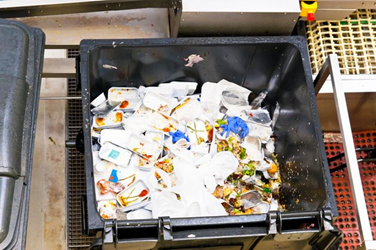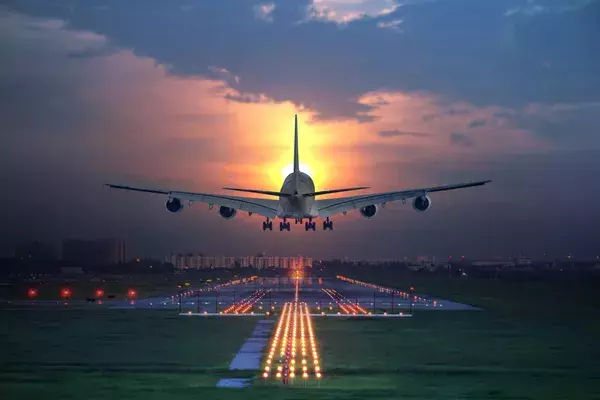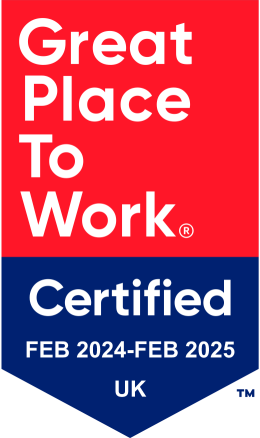16 November 2020 | Blog
Sustainability: A use case for pre-departure communications in reducing cabin waste
16 November 2020 | Blog
Sustainability: A use case for pre-departure communications in reducing cabin waste
While airlines have been focusing on survival, there is an underlying issue that has not gone away, and that is sustainability.
Prior to the onset of the COVID-19 crisis, airlines were pushing to meet their sustainability obligations.
- Etihad Airways became the first major airline to run a long-haul flight without any single-use plastic on board.
- Ryanair committed to going completely plastic-free by 2023.
- Qantas flew a Dreamliner from Australia to the US with 24,000 kg of blended biofuel, saving 18,000 kg in carbon emissions.
- British Airways introduced lighter seats and catering trolleys.
- Norwegian reduced emissions by 30% per passenger kilometre thanks to new, fuel-efficient aircraft.
While all these initiatives have shown incredible advancements in the industry moving towards a greener future, what can airlines do now that budgets have been stripped so dramatically? Sustainability cannot take a back seat, but when it’s the difference between plastic cutlery and survival, airlines cannot be blamed for the decisions they are being forced to make.
Our Regional Commercial Account Manager, Alex Thornton – self-proclaimed AvGeek and avid supporter of all things green – has a key recommendation for airlines looking to meet their sustainability obligations whilst protecting budgets.
Food waste
China Eastern recently launched an initiative called “Clear Your Plate” to encourage passengers not to waste food by only taking what they need. Using data around in-flight meal preparation, the airline has launched a system that can save up to 150kg of food wastage every day from its Shanghai preparation workshop alone.
According to IATA, between 20-30% of the total waste from an aircraft is untouched food and drink that must be treated as hazardous waste in many countries and either incinerated or buried deep in landfill to avoid diseases being passed to animals.

Leftovers of airline food in a large waste container from in-flight service: WICKI58 via Getty Images
This led me to think about other ways that airlines can avoid food wastage, going some way towards meeting their sustainability commitments, whilst saving significant amounts of money at the same time.
According to Anne de Hauw, VP of Innovation at Gate Group, the world’s largest airline caterer, an economy class meal costs $8 on average. If so many of these meals are unnecessary on some flights, why serve it?
Late-night flights
Many long-haul flights from my hometown Sydney depart between 20:00 and 23:00. It’s fair to assume that most passengers are likely to have eaten their evening meal at this point and won’t need another. Airlines could instead be encouraging a more sustainable and waste-free option, like a bed-time snack, as everyone settles down for the long night flight ahead of them. In-flight meals are a great way to show your passengers hospitality – and is something that all passengers have arguably come to expect – but a full meal is not necessary where a token gesture will be just as well-received. Particularly as de Hauw states in her interview with Skift that millennials are trending towards paying for meals if it means getting something they prefer.
Connecting flights
Passengers who are taking connecting long-haul flights (in my instance in Hong Kong/Singapore/Dubai/Abu Dhabi/Doha when travelling from Sydney) will experience multiple food services on the two flights they are on. Most travellers do not have the option to notify the airline that they do not want or need a second meal before arrival. The majority simply take what they are given – but surely that is purely because there isn’t a better way? Apart from helping passengers avoid the unnecessary calorie consumption, asking people what they want pre-departure seems a simple, yet effective way to cut waste whilst offering a personalised service. You can read more in our blog post on why exceptional experiences have become the leading driver of customer loyalty.
Plastic
When we settle down for a long-haul flight, the amount of plastic each of us is presented with is an absolute disaster. Blankets wrapped in plastic, single-use headphones, plastic cups and stirrers and a meal that comes in a range of plastic containers with plastic cutlery wrapped in plastic! But airlines can hardly be blamed for the decisions they’ve had to make in this regard. If they choose items that can be reused, their carbon footprint is simply raised elsewhere to accommodate the extra weight and washing involved. It’s a real conundrum.
But, perhaps airlines can pass some of this responsibility on to their passengers by making them aware of their contribution (an older study at London Heathrow Airport in 2012 revealed each passenger generates around 3.1 lbs of waste every flight) and give them the luxury of choice. While not everyone will go for it, every little will help if passengers are given the ability to choose compostable items - which are currently more expensive to produce than plastic - during the booking and ancillary upsell process.
The key link that airlines are missing
The one giant missing link in both of these examples is communication.
Passengers with special dietary requirements are already able to make requests – kosher, vegetarian, gluten-free…so why not ask all passengers to choose if they even want a meal? If just 10% of passengers decline a single meal, that equates to savings of $260 on an Airbus A350, not even taking into account the potential ancillary revenue that selling snacks in place of a meal will generate.
When it comes to the logistics of this, it would be incredibly simple to put in place with the pre-departure communications solution available on the 15below platform.
How it works in practice
48 hours prior to departure, a communication (the platform allows you to send push notifications via email, SMS, app push, social media messaging or automated voice) would automatically be sent to each contactable passenger with a deep link to manage their booking. See an example of what a best-in-class pre-departure communication looks like in the new world.
And ensuring the message is received and actioned is a question of best practice which we have been helping airlines around the world with for 20 years. You can find out more about boosting engagement rates here.
If you’re looking for ways to cut your expenditure whilst boosting the passenger experience and long-term customer loyalty, using personalisation to reduce cabin waste is a key, simple way to do this. Chat to our passenger experience experts today to find out more.
The author
 Alex Thornton is Head of Account Management APAC for 15below and has been supporting the customer community across the APAC region since 2012. Having worked in the travel industry for more than 25 years, Alex shares his extensive understanding of passenger experience in an ever-changing landscape with best-in-class brands like Qantas, Cathay Pacific and China Airlines.
Alex Thornton is Head of Account Management APAC for 15below and has been supporting the customer community across the APAC region since 2012. Having worked in the travel industry for more than 25 years, Alex shares his extensive understanding of passenger experience in an ever-changing landscape with best-in-class brands like Qantas, Cathay Pacific and China Airlines.




